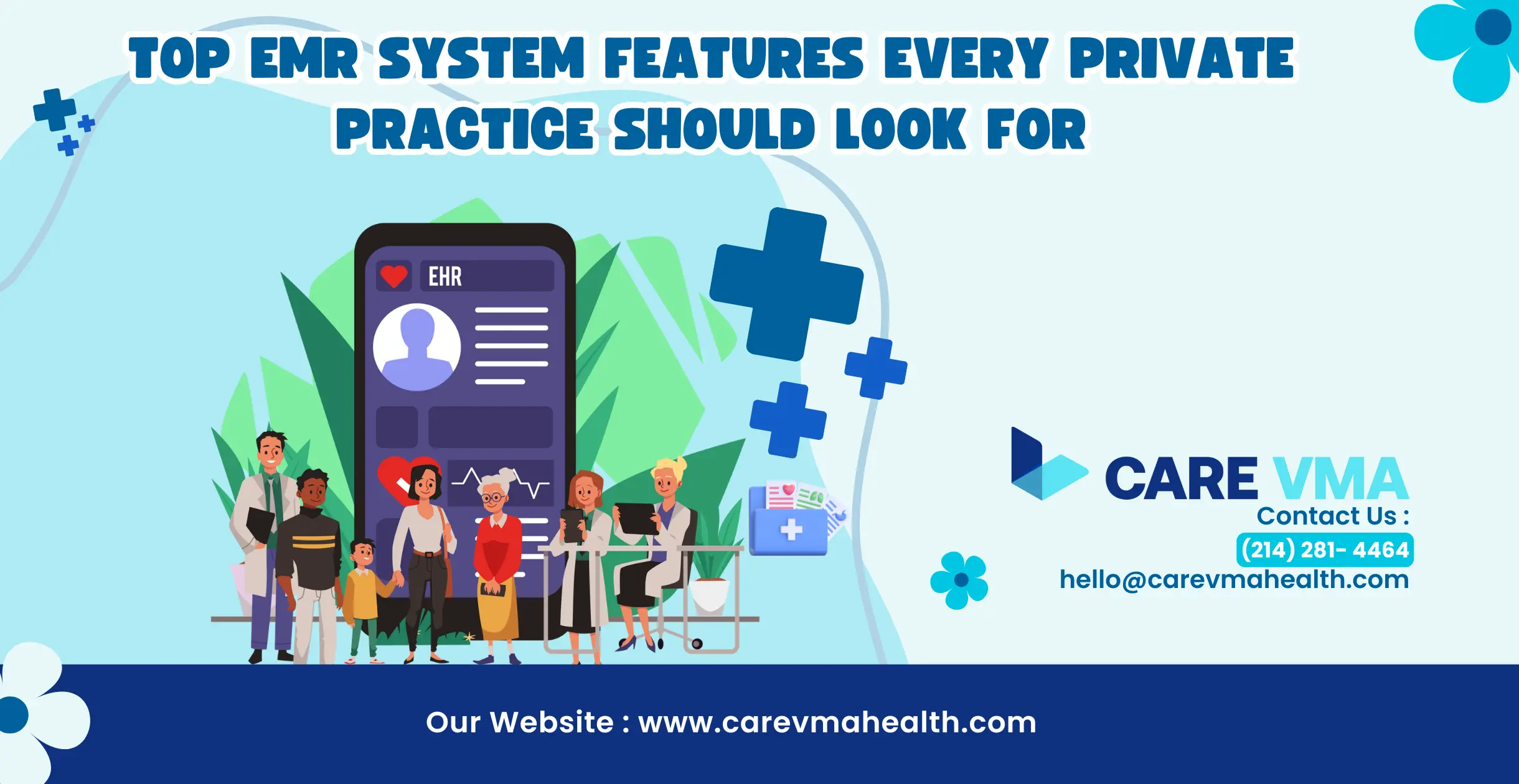- 6340 N Eldridge Pkwy N 117 Houston TX 77041
- (214) 281- 4464

EMR System use is growing among private practices. About 86% of office-based physicians in the U.S. now use one. These systems do more than hold patient records. They help with tasks, store information safely, and support clinic work. A good EHR System management supports both staff and patients. It must be easy to use, helpful, and follow health rules. This blog covers the features that private practices should focus on
Table of Contents
TogglePrivate practices need an EMR System that is clear and easy to use. Staff should be able to move through screens quickly, which helps avoid mistakes and saves time.
Scheduling is part of every clinic. A good system should have tools that let staff manage daily appointments. A strong electronic health record system brings all types of visits into one view. Important features include:
Virtual admin assistants help providers with appointment scheduling and billing, for which they need a perfect electronic health record system. The EHR system helps with clinical and billing tasks by providing the following features:
The electronic medical record system should help doctors give medicine safely. E-prescribing tools and alerts should also help doctors make better choices. These tools help doctors avoid errors and stay focused on care.
A good patient portal helps patients get involved in their care. This can lower the number of phone calls and help patients stay informed. Some systems also send out reminders for vaccines or follow-up visits. The electronic health record system should let patients:
An EMR System should connect with other systems. Doctors often need information from outside clinics or hospitals. A connected electronic medical record system ensures that records are not stuck in one place. This helps avoid scanning or manual entry. Look for:
A private practice needs numbers and reports to track its progress. These tools help the practice know what is working. They also help staff plan for changes. For example, you might adjust clinic hours if no-show rates are high. The EHR System should show:
Every EMR System must protect patient records. Clinics must follow HIPAA rules to stay within the law. Vendors should also provide secure hosting and test their systems for safety risks. Practices with remote staff must also ensure that outside logins are safe. Good systems include:
Most clinics now use cloud-based tools. A cloud electronic health record system lets staff log in from anywhere. Look for systems that promise high uptime and data backups. This keeps care going even when the doctor is not in the office. This is helpful for:
Picking the right EMR System matters. It should meet the clinic’s needs without making work harder. Every private practice should check for simple layouts with tools that work for each specialty, tools for scheduling and telehealth visits, and billing and coding support. Staff and patients benefit when practices use an EHR System with these features. A virtual medical assistant can work without worry. Doctors get more time to focus on patient care. Patients get faster service and fewer mistakes.
No credit card required – Easy onboarding